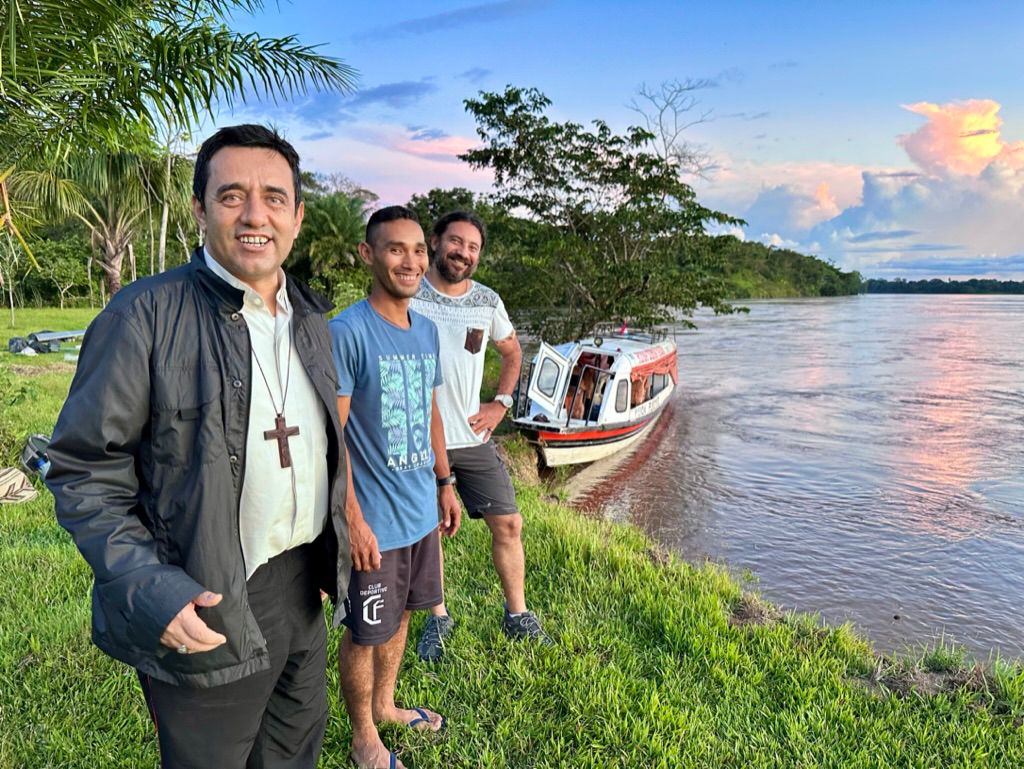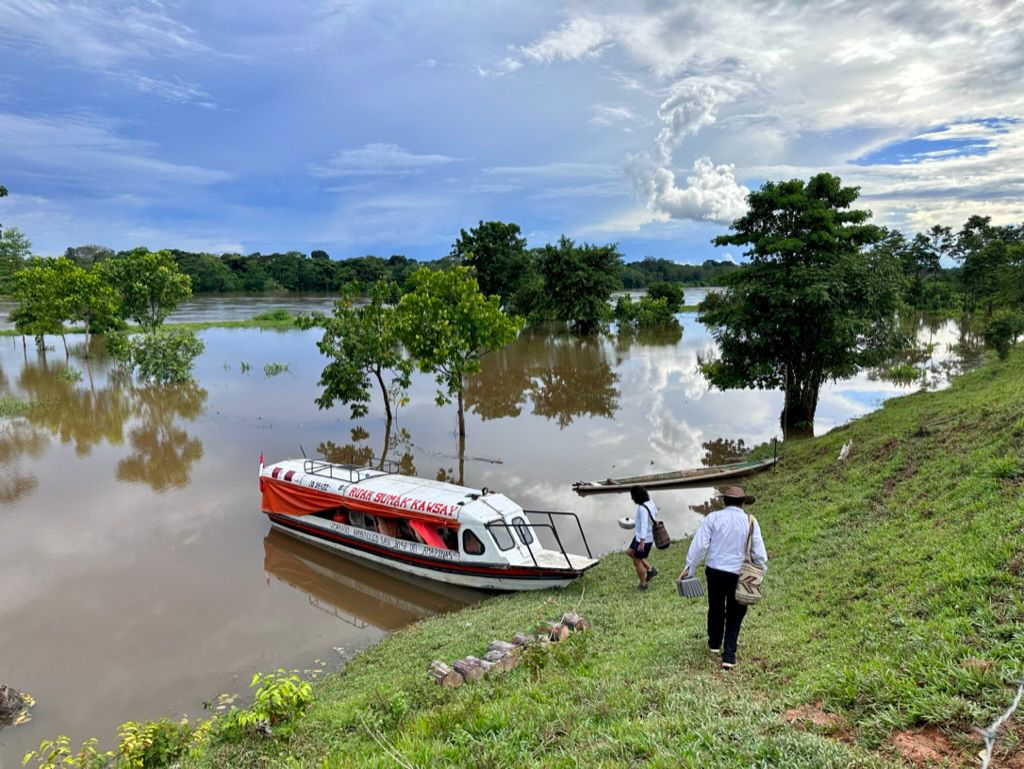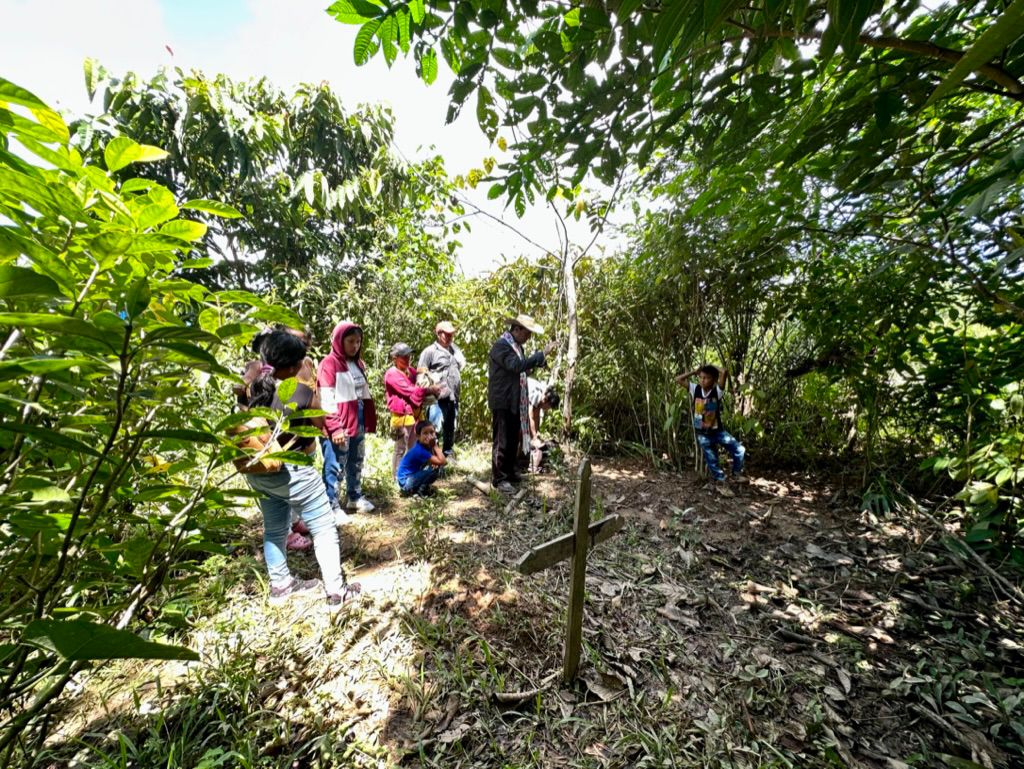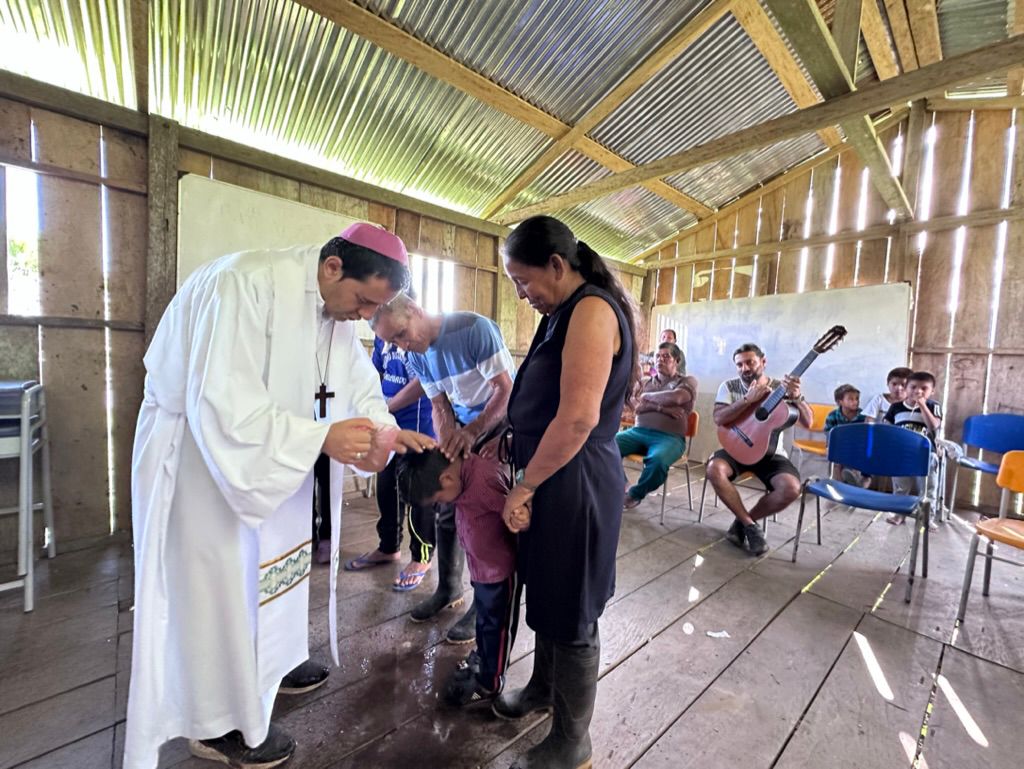Six years after the Synod for the Amazon, the Church continues to walk with hope alongside the peoples of the territory. Pope Francis’ prophetic call in 2019 continues to bear fruit in communities that, day by day, embody a Church with an Amazonian face, committed to life, justice, and peace.
In this context, the Apostolic Vicariate of Puerto Leguízamo – Solano stands as a concrete testimony to that synodal dream: a Church that weaves life, peace, communion, and hope amid the ecological, social, and spiritual challenges of the Colombian Amazon. Its missionary work, guided by Monsignor Joaquín Humberto Pinzón, IMC, and the Consolata Missionaries, reflects the power of the Gospel that springs from the territory and becomes care, reconciliation, and fraternal presence.
A Church that listens and walks with the people
Bishop Pinzón highlights the importance of keeping the synodal process alive in the Amazon, pointing out that “the process is alive and we must continue to support it. It is a construction that is done together and, above all, from the grassroots, from the communities.”
The bishop highlighted three fundamental lessons that guide the Church’s journey in the region:
- The dynamism of the synodal process, which continues to grow thanks to the real participation of the communities.
- The challenge of weaving paths beyond borders, sharing experiences and processes that unite peoples.
- The richness of new pastoral experiences such as itinerancy, inter-congregationality, and interculturality, which strengthen joint work in the Amazon.
A Church with an Amazonian and pluralistic face
Monsignor Pinzón recalled that Pope Francis’ call to be a Church with an Amazonian face, expressed in the Synod of the Amazon and in the exhortation Querida Amazonía, has been brought to life in the Vicariate since long before the synodal process.
“The Amazonian face of this Church is the diverse faces of the indigenous peoples, peasants, and Afro-descendants who inhabit the territory,” he said.
This cultural diversity is both a challenge and a treasure that drives a truly intercultural and participatory pastoral ministry, centered on communion, shared mission, and care for the territory.
CAPI: a space for wisdom and encounter
One of the most significant fruits of this journey is the Amazonian Center for Intercultural Thought (CAPI), which arose from dialogue with indigenous leaders and the formative experience of catechists and animators.
“CAPI is a gift, because it means having a space for systematizing the life and culture of the peoples, their spirituality,” explains Monsignor Pinzón.
CAPI has become a place of encounter and integral formation, where memory, ancestral knowledge, and collective dreams converge. Two Amazonian Border Mingas have already been held there under the slogan “Amazonia, a space of life that unites shores,” spaces where spiritual and social leaders and communities dialogue to build proposals that guarantee the life and future of the territory.
Care for creation and commitment to life
The choice to defend life and the territory permeates all the pastoral action of the Vicariate. “The global pastoral plan is imbued with a commitment to the territory, to this Amazon, the biological heart of the earth,” said Monsignor Pinzón.
From this perspective, pastoral plans have been promoted that integrate ecological, youth, rural, and social dimensions, highlighting initiatives such as Agrovida, which promotes agroecological practices in the face of deforestation and offers sustainable alternatives to extensive livestock farming. These actions seek to generate new community and ecological practices, sowing awareness and commitment to the care of our Common Home.
Paths of peace and hope
Finally, Bishop Pinzón emphasized that synodality and care for creation are inseparable paths to peace:
“You cannot live in the Amazon without this spirituality of recognition and care for our mother, our Common Home. To the extent that we commit ourselves to life—to people, to water, to the land—we are building processes of peace.”
The dream of peace to which the Vicariate aspires is not limited to the absence of conflict, but encompasses the possibility of life flourishing in all its dimensions: human, cultural, spiritual, and ecological.
In this mission, the Amazonian Church continues to be a path and a hope for the peoples. Its witness reminds us that caring for our Common Home, promoting justice, and weaving communion are tasks inseparable from faith.
From Puerto Leguízamo, this Church with an Amazonian face continues to proclaim that another way of living and believing is possible, where life and peace embrace each other in the green heart of the world.




